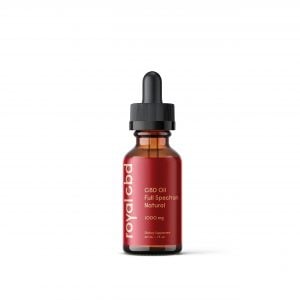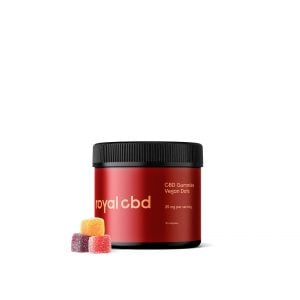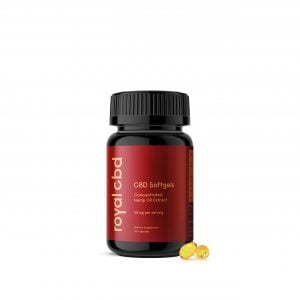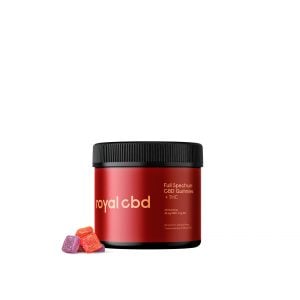Commercial vehicle drivers are wondering about the legality of CBD on their job.
Can truck drivers use CBD oil without worrying about losing their license?
Is CBD safe to use when driving?
Does it show up on a drug test?
Is it legal to cross state borders with CBD oil?
The short answer is that drivers can use CBD — but they should be careful what products they take.
Between differing laws among states, the effects of CBD, and drug tests, there can be legal limitations to using CBD on the job.
In this article, we cover this subject from roots to branches.
Can Truck Drivers Use CBD Oil?
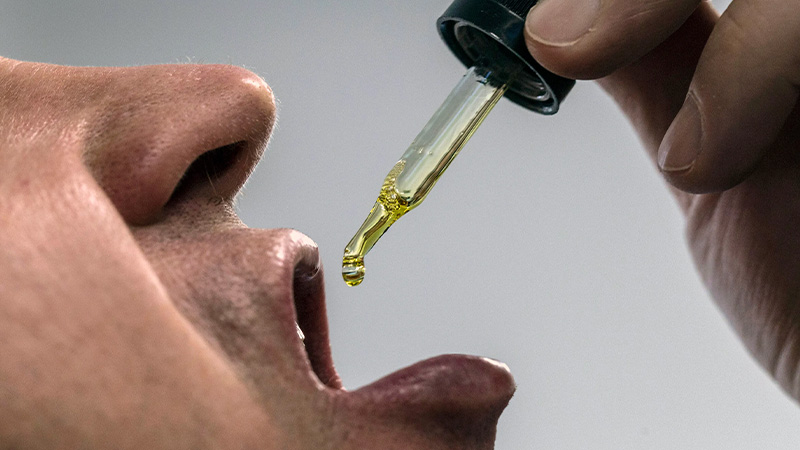
Yes, truck drivers can legally use CBD, but it’s more complicated when it comes to using CBD oil while behind the wheel.
Despite being federally legal and on both sides of a particular state, there can be problems with the legalities of traveling with CBD from one state to another.
Not to mention that high doses of CBD can lower blood pressure and cause sedation — something you don’t want to happen as a professional driver.
Ultimately, truck drivers can use CBD at work, but you should avoid taking CBD with you when crossing the borders of states like Idaho or North Dakota.
In addition, your company may have a separate policy with its own limits on cannabis products — including CBD, regardless of its source and legal status.
Is CBD Oil Legal in the USA?
Yes, CBD was legalized in 2018 by the amended Agricultural Act signed by President Trump. The new law removed hemp from the list of controlled substances — reclassifying it as an agricultural commodity.
Before the 2018 Farm Bill, farmers could grow hemp only for industrial and research purposes. Today, they can grow it for any use — including health supplements like CBD oil.
The only condition for CBD products to be legal is that they contain 0.3% THC or less. If that concentration fits within the legal limit, it’s considered a hemp-derived product. Otherwise, it may be classified as marijuana-derived CBD oil and may be illegal in some states.
Delta 9 THC (marijuana) products are illegal to use both at work and at home. You also can’t use them while driving any motor vehicle under federal law.
Is It Legal to Cross-State Borders with CBD?
You can legally travel between states with CBD — even as a truck driver.
However, you need to make sure your product contains 0.3% or less — so you don’t accidentally bring marijuana into a state where it’s banned.
Some truck drivers also report facing problems at the border when carrying CBD. While it’s legal, border officials want to test the product using a quick test to make sure it’s legal. This can be time-consuming and is a real pain in the neck for truckers trying to hit the schedule.
Why Do Truck Drivers Use CBD?

CBD has a few significant benefits for truck drivers, from stress and anxiety management to better rest and reduced physical discomfort — all backed by scientific research (1).
Due to the irregular and nerve-consuming lifestyle of driving professional vehicles, CBD may help truck drivers deal with some of the pesky side effects of their job.
1. Compromised Sleep Cycles
Truck drivers experience irregular sleep schedules because of long-haul drives and overnight shifts. Some of them even have to work in that schedule for several days a week, and then take several days off.
Living this way makes it difficult to establish a healthy sleep cycle. As reported by the National Institute of Health, over 20% of truck drivers report chronic sleep disorders (2).
CBD can reduce sleep latency (the time you need to fall asleep) (3). It can also balance REM sleep disorders, such as abrupt movements, twitching, and vocalization (4). The REM sleep stage is the one where we experience dreams.
2. Stress and Anxiety
Whether you’re stressed and anxious because of the nature of your job, being away from your close ones, or irregular work plan, truck driving is a tiring profession. A study conducted by the National Institute of Health (NIH) found that more than 26% of truck drivers experience anxiety and depression.
CBD is known to improve stress response, thus reducing anxiety and making the user feel calm and more relaxed (5). Improvements in sleep quality are the indirect result of these effects. CBD can also elevate mood and stabilize emotions by increasing serotonin levels (6).
3. Discomfort from Driving
Sitting in the same position for long periods of time is likely to cause physical discomfort in the back, muscles, and joints. This feeling can stem from inflammation, impaired blood circulation, or irritants like a tight seatbelt.
CBD is known for its inflammatory properties, which can ease discomfort and relax the muscles. Especially when used topically, CBD has been shown to decrease redness, irritation, and tension in the muscles and joints (7).
4. High Blood Pressure (Hypertension)
More than 30% of drivers worldwide suffer from high blood pressure (hypertension) (8). This can be triggered by genetic factors or diet, but it can rapidly deteriorate if you live a sedentary lifestyle like truck drivers.
Not to mention that professional drivers often eat junk food as part of their diet. This, in turn, can result in high blood pressure and diabetes.
CBD relaxes the blood vessels and helps improve blood flow throughout the body (9). It can also reduce inflammation in the pancreas, a common side effect of hypertension-induced diabetes (10).
Does CBD Show Up on a Drug Test?
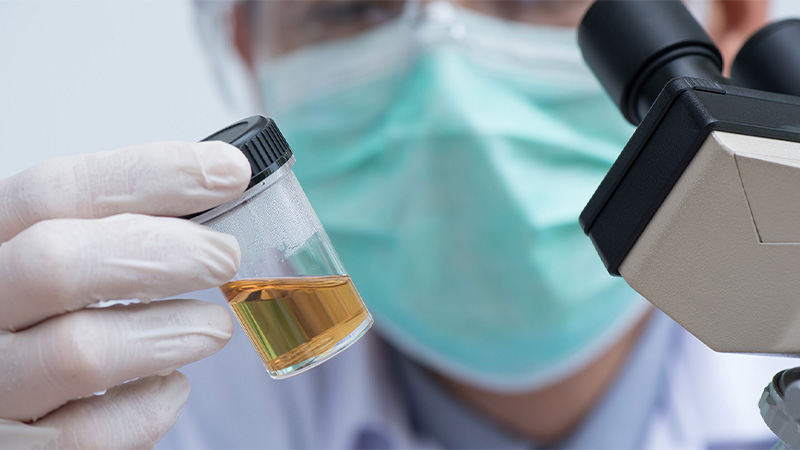
CBD isn’t tested on a typical workplace drug screening. However, since CBD oils contain a trace amount of THC, it’s theoretically possible to test positive for marijuana while taking full-spectrum CBD oil.
The good news is that you’d need to take about 2,000 mg CBD daily to trigger a false-positive result for THC. To avoid this, make sure that your CBD products contain less than 0.3% THC.
If that doesn’t calm your nerves, opt for broad-spectrum CBD oils or CBD isolate oils so that no THC enters your body.
It’s all the better if your CBD product comes with an up-to-date certificate of analysis with results for potency and contaminants like pesticides, heavy metals, solvents, or mold.
Does CBD Affect Driving?
CBD alone doesn’t cause intoxication, so it won’t impair your ability to drive vehicles. However, when you take too high a dose, you may feel sedated from the sudden drop in blood pressure.
It’s also possible that CBD can interact with medications, so if you’re taking any, consult your doctor to set up the right dosage and schedule for both substances. This way, you can prevent negative interactions.
Use CBD oil intuitively; if your body shows signs of tiredness and you’re not feeling ready to jump behind the wheel, use a lower dose next time and reassess the effects.
What’s the Safe Dose of CBD?
The optimal dose of CBD will vary between different individuals depending on their weight, age, metabolism, the strength of CBD, and the goals they want to achieve.
You may need anywhere from one CBD gummy to a full dropper of a CBD oil tincture.
The best way to figure out what works best for you is to start with a low dose, such as 5–10 mg, and observe how you feel after 30 minutes, an hour, several hours, and the whole day. If you don’t see any positive change, increase the dose by another 10 mg — and continue for a day or two.
Sometimes, CBD may need more time to produce its beneficial effects; many people report the first effects after 2 weeks of consistent supplementation.
Final Verdict: Can Truck Drivers Use CBD?
Long story short, yes, truck drivers can take CBD. The only potential risk of taking CBD oil by a professional driver is the very small amount of THC that could result in a false-positive result during a drug test.
Still, that risk is almost nonexistent in regular doses — and the health benefits for truck drivers’ sedentary lifestyle, irregular sleep cycles, and mental health concerns outweigh the potential downsides.
If you’re a truck driver, we recommend broad-spectrum CBD or CBD isolate. That’s because these two types of CBD oil don’t have any THC in them, eliminating the risk of a positive drug test.
Make sure to find a dose that works for your health needs. You can use a different amount during your daily shift versus your night shift — to make sure you maximize the benefits of CBD.
Sources:
- Blessing, E. M., Steenkamp, M. M., Manzanares, J., & Marmar, C. R. (2015). Cannabidiol as a potential treatment for anxiety disorders. Neurotherapeutics, 12(4), 825-836.
- Shattell, M., Apostolopoulos, Y., Collins, C., Sönmez, S., & Fehrenbacher, C. (2012). Trucking organization and mental health disorders of truck drivers. Issues in mental health nursing, 33(7), 436-444.
- Russo, E. B., Guy, G. W., & Robson, P. J. (2007). Cannabis, pain, and sleep: lessons from therapeutic clinical trials of Sativex®, a cannabis‐based medicine. Chemistry & biodiversity, 4(8), 1729-1743.
- Babson, K. A., Sottile, J., & Morabito, D. (2017). Cannabis, cannabinoids, and sleep: a review of the literature. Current psychiatry reports, 19(4), 1-12.
- Sagaspe, P., Sanchez-Ortuno, M., Charles, A., Taillard, J., Valtat, C., Bioulac, B., & Philip, P. (2006). Effects of sleep deprivation on Color-Word, Emotional, and Specific Stroop interference and on self-reported anxiety. Brain and cognition, 60(1), 76-87.
- R de Mello Schier, A., P de Oliveira Ribeiro, N., S Coutinho, D., Machado, S., Arias-Carrión, O., A Crippa, J., … & C Silva, A. (2014). Antidepressant-like and anxiolytic-like effects of cannabidiol: A chemical compound of Cannabis sativa. CNS & Neurological Disorders-Drug Targets (Formerly Current Drug Targets-CNS & Neurological Disorders), 13(6), 953-960.
- Hammell, D. C., Zhang, L. P., Ma, F., Abshire, S. M., McIlwrath, S. L., Stinchcomb, A. L., & Westlund, K. N. (2016). Transdermal cannabidiol reduces inflammation and pain‐related behaviours in a rat model of arthritis. European Journal of Pain, 20(6), 936-948.
- Krishnamoorthy, Y., Sarveswaran, G., & Sakthivel, M. (2020). Prevalence of hypertension among professional drivers: Evidence from 2000 to 2017—A systematic review and meta-analysis. Journal of postgraduate medicine, 66(2), 81.
- Jadoon, K. A., Tan, G. D., & O’Sullivan, S. E. (2017). A single dose of cannabidiol reduces blood pressure in healthy volunteers in a randomized crossover study. JCI insight, 2(12).
- Lehmann, C., Fisher, N. B., Tugwell, B., Szczesniak, A., Kelly, M., & Zhou, J. (2016). Experimental cannabidiol treatment reduces early pancreatic inflammation in type 1 diabetes. Clinical hemorheology and microcirculation, 64(4), 655-662.
